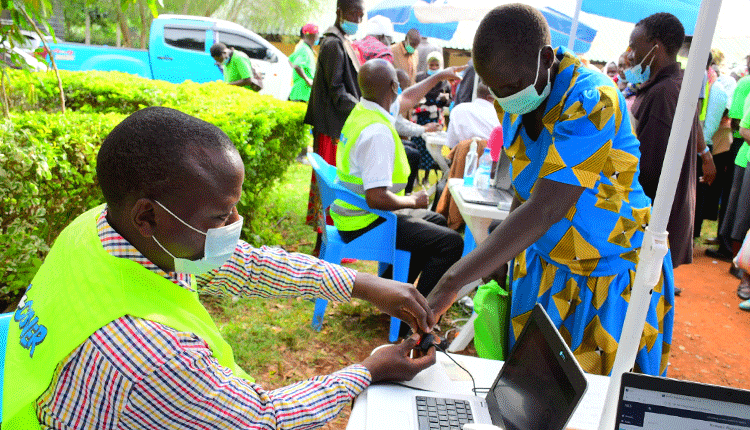NHIF pushes for law to enforce contributions

For the implementation of the Universal Health Coverage (UHC) to succeed, all Kenyans must be obligated to contribute to the National Hospital Insurance Fund (NHIF), the health insurer’s top management has said.
To attain UHC’s goal of ensuring every citizen has access to quality healthcare services they need without getting into financial difficulties, employers should also be compelled to match their workers’ contributions to the NHIF.
The NHIF Amendment Bill, 2021 is before the National Assembly, and at its Third reading.
Dr Peter Kamunyo, the Fund’s Chief Executive Officer cautioned it may be difficult for Kenyans who have not enrolled with NHIF to access government services in future.
“If the Bill goes through, we can be in a state of UHC at the end of the year,” he said when he met journalists in Naivasha for a one-day training on UHC, and the strategic move the NHIF is taking as a purchaser of healthcare services.
Apparently, despite opposition from employers and a large section of the private insurers, the NHIF solidly pegs its hopes on the passage of these proposals, to be able to provide affordable health for all, and even for Covid-19 patients.
Little contributions
He decried the huge losses the national health cover payer has been incurring – partly due to little contributions – that almost brought it to its knees.
“I call upon well-wishers to come forth and adopt a village, a family, a child and pay for their health insurance.
We shall have collectively taken a step towards bridging the gap of poverty by making strides towards UHC,” Kamunyo said.
Currently, the fund is re-engineering its ICT systems to allow for a full digitisation of its core operations; restructuring of its human resource and the most important one, the amendment of NHIF Act, 1998.
“Most importantly, the Bill seeks to amend the National Hospital Insurance Act, 1998, to establish the National Health Scheme and to enhance the mandate of the NHIF to deliver the UHC,” Kamunyo said.
Notably, Clause 10 of the Bill proposes to amend section 15 of the Act to provide for the liability of employers to make a matching contribution to the fund equal to that which the employee is liable and make it mandatory for Kenyan residents to contribute to the fund.
“To achieve UHC, we must have everybody obligated to enrol to the NHIF, and for those who are not able, a deliberate move should be made, to support them,” he said, noting that “if NHIF shuts down today, the country’s healthcare system will collapse.”
Approximately, 20 per cent of the 5.1 million poor and vulnerable households, about 1.5 million needy Kenyans have been identified across all the 47 counties.
Unique health care
On March 8, the County Government of Kisumu launched a unique universal health care insurance programme with a focus on the inclusion of vulnerable households with 45,000 of the 90, 000 targeted, already starting to benefit in the first phase.
“Under the NHIF Supa Cover benefits package that’s being rolled out at initially 48 selected public health facilities that are evenly spread across the seven sub-counties, the county we invested Sh67.5 million as the first quarter premium payment for the 45,000 most vulnerable households,” Governor Anyan’g Nyong’o told People Daily.











